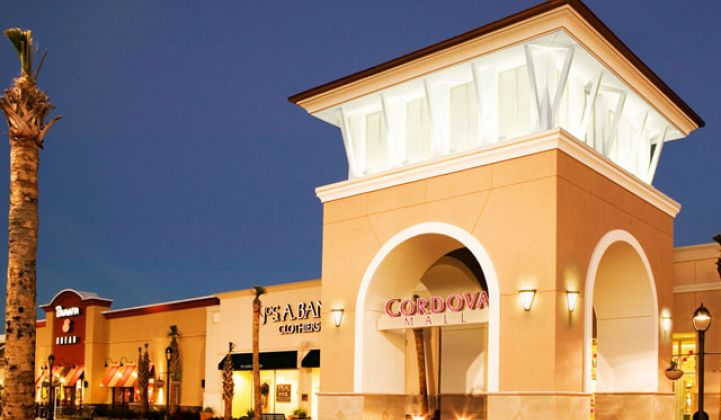Sensity Systems recently closed a funding round for $36 million to scale its smart lighting platform.
The round was led by Cisco Investment and includes Acuity Brands, GE Ventures and Simon Venture Group.
Sensity’s NetSense light sensory network is designed to bring intelligence to third-party LED light fixtures. The company’s devices are primarily intended for use outdoors, where the potential applications are seemingly endless.
For example, investor Simon Property Group chose Sensity Systems to supply LEDs for some of its parking lots to reap the energy savings. But the mall real estate company was also interested in the possibility of leveraging sensor nodes on the lights to measure snowfall depth for more efficient plowing, or leveraging video to enable smarter parking for its customers.
Customers who are simply looking for the energy savings of LEDs could certainly find them in a cheaper package than what Sensity is selling. But for customers who want a more future-proof light, there is an opportunity to invest in an LED that is equipped to be much more, argues the Sunnyvale, California-based startup.
“Each of the additional applications are much more cost-effectively deployed on top of the base NetSense platform as compared to deploying independent from NetSense, which is what happens today," said Sean Harrington, SVP of sales and marketing at Sensity.
The startup’s nodes are integrated with LEDs from Amerlux and Acuity, but the nodes can also be retrofitted onto other fixtures. Harrington said that Sensity is seeing strong demand for both.
At this year’s Lightfair International trade show, every company was pitching the capabilities of its LED networks. “There’s a lot of evangelizing,” said Sensity’s enterprise sales director Geoff Somerville at the time. Even so, “Lighting will be where it gets real,” he added.
Cisco is interested in Sensity as part of its push to be the chosen network integrator in smart-cities projects. That company is competing for smart-city contracts based on LED streetlights with other technology companies such as IBM, as well as metering companies like Itron and Silver Spring Networks and LED companies including GE, Philips and Cree.
“Our strategic relationship with Sensity marks a defining moment in our journey of innovation in the internet of things and the internet of everything,” Wim Elfrink, EVP of Industry Solutions and Chief Globalization Officer at Cisco, said in a statement. “We share a common vision with Sensity, recognizing that smart lighting is just the tip of the iceberg.”
Currently, Cisco resells Sensity’s products and is leveraging Sensity’s application programming interface (API) for future products.
Sensity’s network can be used for public safety with its embedded cameras, but it can also be the backbone of a public Wi-Fi network. Even though there are many applications for a single network, selling that to cities with siloed budgets and departments can be difficult. Few cities today are thinking holistically about developing the apps that sensored streetlights might offer.
Most cities are either layering on networks after investing in LEDs, as Los Angeles is doing, or looking for performance contracts to make the investment in the first place. That makes other entities, such as Simon Property Group or educational institutions, attractive early customers.
“Malls, stadiums, airports and campuses are faced with similar challenge as cities,” said Harrington. “They are seeking to facilitate more efficient flow of vehicles, improve public safety and drive operational efficiencies -- all of which can be addressed cost-effectively using Sensity's technology.”
Sensity has raised a total of $74 million. Other investors include Almaz Capital, Mohr Davidow Ventures, Radar Partners and Silver Creek Ventures.



